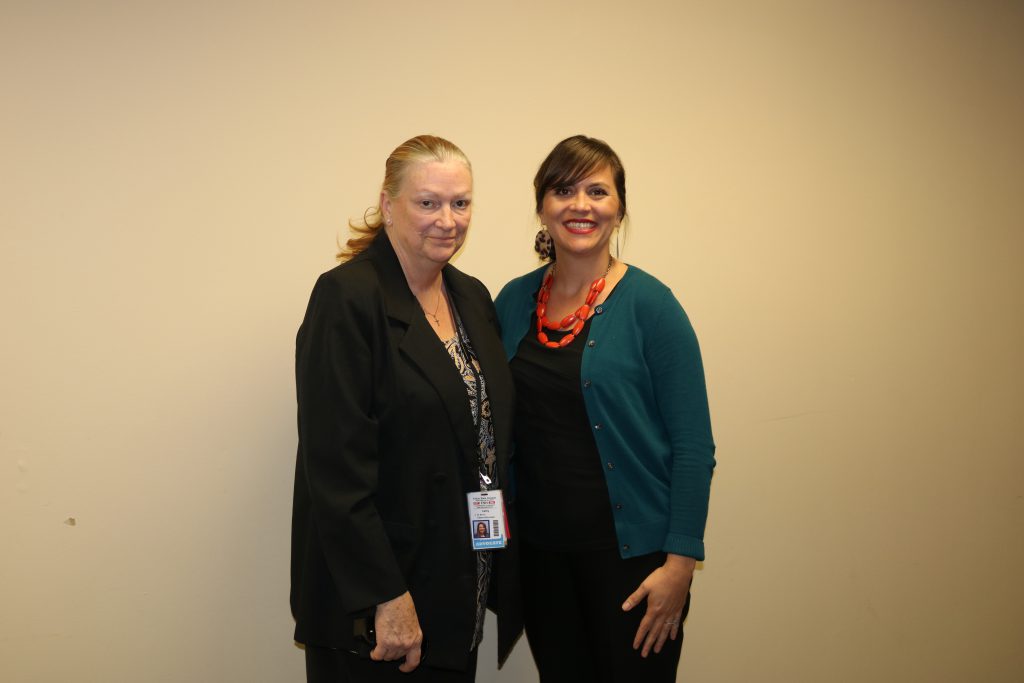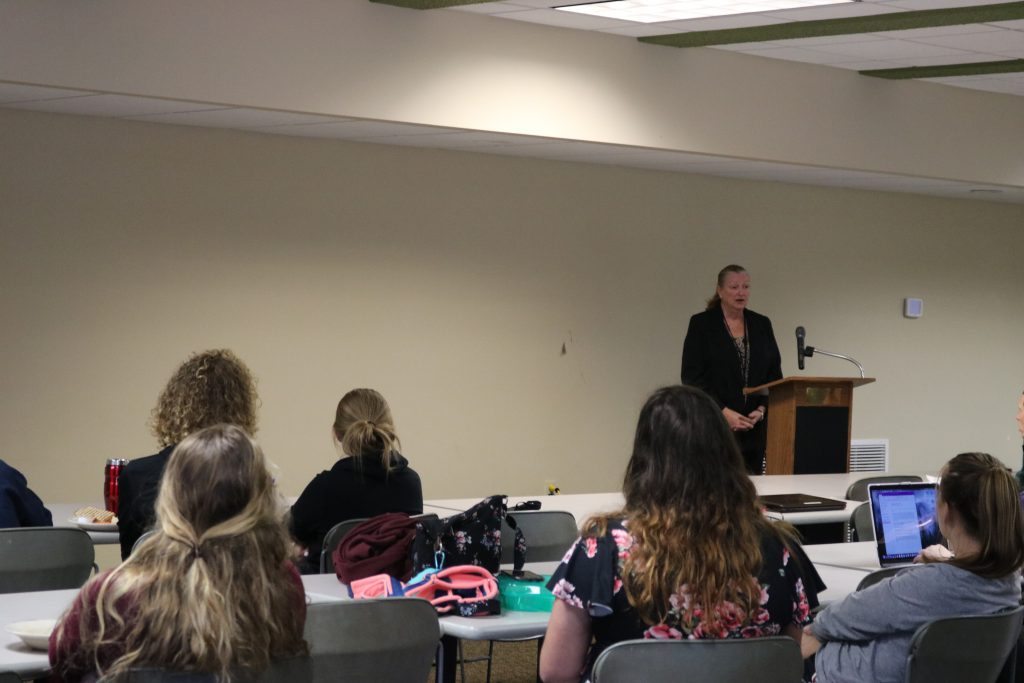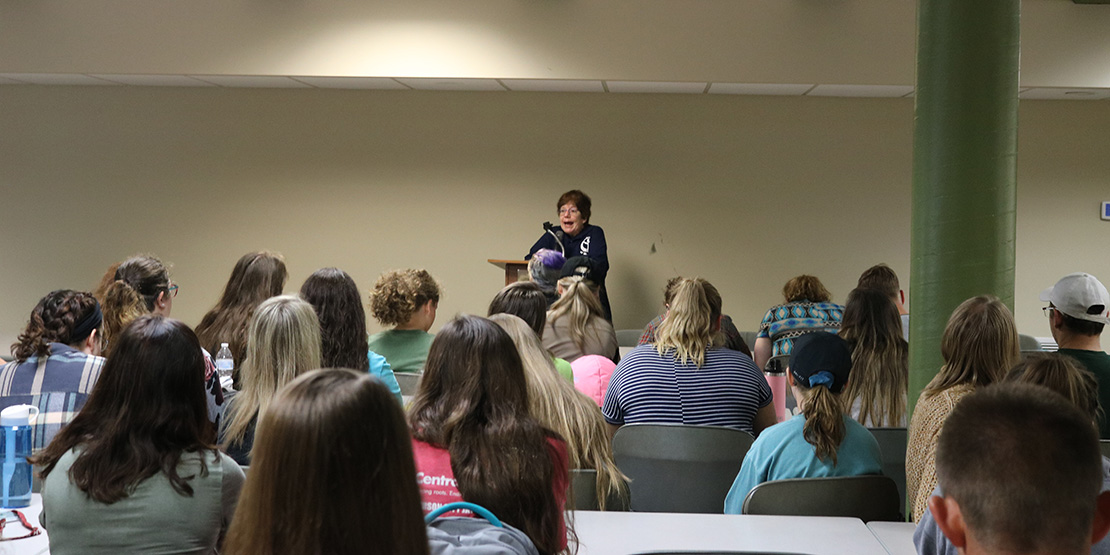Like at any other college campus across the country, a certain percentage of William Woods students have at one time in their lives wrestled with mental health issues. Especially when one considers that, according to the National Alliance on Mental Illness (NAMI), 1 in 5 adults will experience mental illness in a given year. Which is why William Woods recently began partnering with the RESPECT Institute to reach out to these members of the campus community, and destigmatize mental illness.
The RESPECT Institute is a movement began by an international consultant by the name of Joel Slack. He created the RESPECT Institute to educate the public by telling his personal story and the powerful impact of respect and disrespect on a person that’s recovering from mental illness. Slack was a very successful athlete and businessman who suffered a severe episode of mental illness in mid-life and was hospitalized. He realized that when he was around people who were respectful of him and what he was going through, he would go into recovery. When he was around people who were not respectful, however, then his recovery would be prohibited. After he was released from the hospital, he wanted to help people recover from their mental illness, so he founded the RESPECT Institute at Fulton State Hospital.
Slack’s goal was to teach individuals with mental illness to share their stories of recovery with public audiences, to help create a better public understanding of mental illness. RESPECT (responsive, encouraging, sensitive, perceptive, empowering, caring and thoughtful) speakers offer insight into the way the attitudes of others affect the success or failure of people who have mental illness.
The RESPECT Institute provides speakers to all types of groups all around the state of Missouri, nationally and internationally. It is free of charge and based on invitations. William Woods ASL/English Interpreting professor Margie Hoskins has been inviting RESPECT speakers to William Woods for the last two years. Anyone can call the state coordinator for the RESPECT Institute, and they put you in touch with the local coordinator who schedules speakers for you. Speakers often appear at schools, civic organizations, church groups, hospitals, with law enforcement and emergency personnel, mental health advocacy groups and mental health professionals.

“I’m a sign language interpreter and specialize in mental health interpreting, so I see a lot of value and benefit in bringing in the RESPECT Institute,” said Hoskins, who has now brought in RESPECT speakers several times and plans to bring in three more in the spring semester.
Hoskins believes bringing in RESPECT Institute speakers benefits William Woods because mental illness still has a very negative stigma in our society, a stigma that is harmful to people who are struggling with mental illness, their family and friends. Education is one of the most effective ways to help destigmatize mental illness and those affected by it, benefitting our entire campus community.

It also benefits the speakers.
“One of the speakers shared in her story that ever since she joined RESPECT Institute, it brought back nightmares of what she went through,” Hoskins said. “But she said having nightmares is worth it if she gets to speak to people and give them the opportunity to hear her life story and think differently about mental illness.”
According to Michelle Gerstner, Director of RESPECT Institute of Missouri, RESPECT speakers reported feeling more empowered and had a greater sense of self-awareness after their training with the Institute and after giving speeches. They also reported feeling encouraged to move forward with their treatment and recovery and willing volunteer to speak whenever requested.
Considering the 1 in 5 mental illness statistic, if Hoskins looks at just one of the recent events she hosted where 100 students attended, that means 20 of those students would be directly affected, not including students who were affected by having friends and family who were dealing with mental illness. This statistic illustrates why it is important to destigmatize mental health, so more students feel comfortable speaking out, getting help and helping their friends affected.
“Mental illness in college students can manifest in multiple ways with varying degrees of intensity,” said Gerstner. “Common mental illnesses found on college campuses are depression, anxiety, substance use disorder, eating disorders, sleep issues and disorders, self-injury and schizophrenia.”
The best tools students have against these examples, according to Gerstner, are to recognize the signs and symptoms – in themselves and others. Early recognition and intervention are key to addressing mental illness before it affects a student’s personal and academic life.
“One of my greatest hopes in having the RESPECT Institute speakers share their story is that by exposing our students to those who have battled with and are recovering from severe, debilitating mental illness, it will allow the students to develop compassion and empathy for the speaker,” said Hoskins.
Hoskins brings in the RESPECT speakers to empower students and encourage them to grow in their understanding of mental illness. That is the biggest benefit of this program, the exposure students get to mental illness. The RESPECT speakers show someone can go through severe mental illness and recover and have a good quality of life afterwards. Hoskins hope is for students to leave each presentation more empowered and willing to ask for help for themselves or for a friend.

Gerstner has seen progress in destigmatizing mental health due to the program. Before hearing RESPECT speakers 49.5% of audience members said they would consider being friends with someone with mental illness. After hearing a RESPECT speaker, that number jumped to 73.2%. The surveys conducted also measured public attitudes and community contact with those who are mentally ill. After listening to a RESPECT presentation, attitudes improved towards individuals with mental health and less people held the belief that persons with mental illness are a threat to society and should be avoided.
To schedule a speaker, contact Michelle Gerstner, statewide RESPECT coordinator, at the Missouri Department of Mental Health, 800-364-9687 or e-mail michelle.gerstner@dmh.mo.gov.

